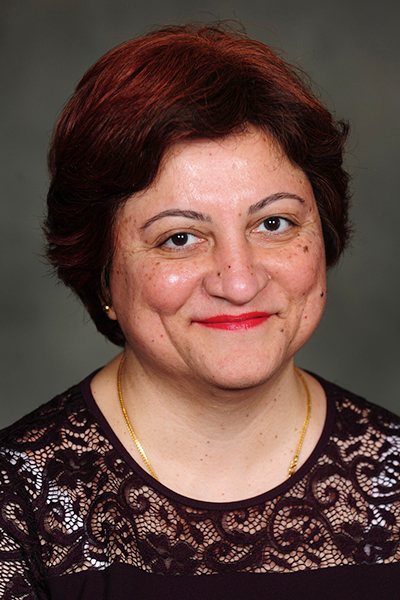
Patients with OSA who rely on avoidant or passive coping styles are more likely to report memory and concentration problems, according to results from a small controlled cross-sectional study.
“Many patients with OSA report problems with memory or concentration—so-called cognitive complaints—even when objective cognitive impairments are not detected,” said lead study author Tim J.A. Vaessen, MSc, of the Department of Psychiatry and Medical Psychology at Spaarne Gasthuis, Haarlem, the Netherlands. “This raises a clinical dilemma: What do these complaints actually signify, and how should clinicians respond?”
For the study published in Sleep Medicine, Vaessen and colleagues drew from a cross-sectional analysis on cognitive complaints in OSA that was conducted at VieCuri Medical Center and Reinier de Graaf Hospital in the Netherlands between June 2012 and April 2018.1 They explored whether coping style—specifically avoidant or passive strategies like withdrawing, denying problems, or ruminating—might help explain these subjective complaints.

The study population consisted of 24 patients with OSA and 15 patients in a healthy control group. The researchers used the Cognitive Failures Questionnaire (CFQ) and the Behavior Rating Inventory of Executive Function – Adult Version (BRIEF-A) to assess cognitive complaints and the validated Utrecht Coping List (UCL) to evaluate coping styles. They used Pearson correlations to identify variables associated with cognitive complaints and hierarchical regression analyses to assess the unique contribution of coping styles in explaining these complaints.
“It’s essential to distinguish between cognitive complaints—the subjective experience of cognitive difficulties—and cognitive impairments, which are objectively measured deficits,” said Vaessen, who is a PhD candidate at Tilburg University. “In OSA, these don’t always align: Some patients report complaints without impairments and vice versa.”
The mean ages of patients with OSA and patients in the control group were 48.3 years and 53.3 years, respectively. Compared with the control group, patients with OSA were significantly more likely to exhibit cognitive impairments (56% vs 11%, P < .01). In patients with OSA, reduced active problem-solving on the UCL was independently associated with higher CFQ scores (β = −.43), irrespective of apnea-hypopnea index, anxiety, or depression symptoms. Avoidant coping styles (β = .49) were independently linked to higher BRIEF-A scores. Overall, coping styles explained 51% to 59% of the variance in cognitive complaints among individuals with OSA.
“These psychological factors turned out to be even more predictive than sleepiness, fatigue, anxiety, or depression, which are typically considered the main culprits,” Vaessen said. “Though we had included coping style as an exploratory variable, it ultimately explained over half of the variance in complaints. This was surprising, especially given our modest sample size, and it challenged assumptions about the causes of perceived cognitive difficulties in OSA.”
He added that the findings suggest clinicians should look beyond sleep apnea and mood symptoms when evaluating cognitive complaints.
“Even patients who aren’t especially sleepy, anxious, or depressed may struggle with cognitive symptoms if they rely on unhelpful coping styles,” he said. “Integrating psychological assessment and support—especially around coping strategies—could therefore be a valuable addition to care.”
Vaessen acknowledged certain limitations of the study, including its small sample size and that it shows associations only between maladaptive coping strategies and cognitive complaints in patients with OSA.
“Future studies must test whether improving coping actually reduces cognitive complaints and enhances daily functioning,” he said. “Lastly, our sample mainly included [patients with OSA] with low subjective sleepiness, so it’s unclear whether the findings extend to sleepier patients, who may experience cognitive complaints for different reasons.”
According to Chitra Lal, MD, MBBS, FCCP, Medical Director of the University of Utah Sleep Wake Center, who was not involved in the study, another key limitation was that the control group was not evaluated for OSA using sleep studies.
“A screening tool specifically targeting screening for OSA, such as the STOP-BANG or the Berlin questionnaire, was not used to screen for OSA,” Dr. Lal said. “In addition, this study does not elaborate on the results of the formal neuropsychological testing that was done and whether the coping mechanisms correlated with cognitive impairment as measured by formal testing. It also raises the question as to whether there is an underlying pathophysiological mechanism between certain coping mechanisms being seen more commonly in [patients with OSA. These questions would need to be answered in future studies.”
References
1. Vaessen TJA, Mark RE, Overeem S, Sitskoorn MM. Cognitive complaints in obstructive sleep tpnea: the overlooked role of coping styles. Sleep Med. 2025:134:106695. Preprint. Published online July 17, 2025. doi:10.1016/j.sleep.2025.106695
